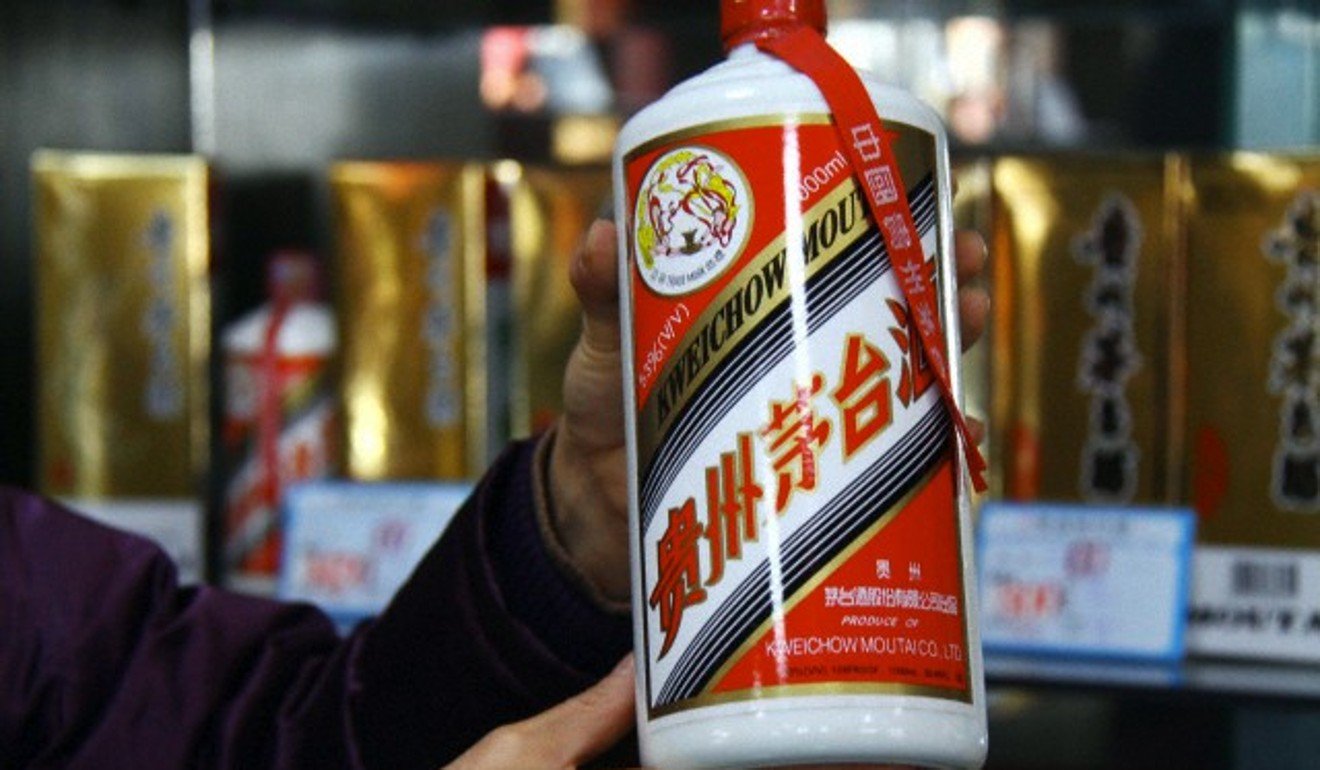
Targeted in crackdown, Moutai liquor is once again the toast of the town
A symbol of Chinese President Xi Jinping’s anti-corruption campaign, Kweichow Moutai is back as a highly popular - and expensive - liquor brand
A pricey Chinese potent liquor brand, sales of which had been depressed by President Xi Jinping’s anti-corruption campaign, has become extremely popular again - emptying distributors’ stocks and sending the share price of producer Kweichow Moutai to one new high after another.
The company’s flagship product, Feitian, with 53 per cent alcohol, is in short supply across the country as retailers, wholesalers and even consumers start to hoard bottled Baijiu as an inflation-proof investment - along with gold bars, property and stocks, according to a few dealers.
“Basically there are only buyers and no sellers [of Feitian],” said one dealer in Guangzhou, who had been trading liquor for a few years. In recent months, people have started hoarding the product with the expectation that demand for Moutai will expand again in coming years - when Xi has consolidated his power and the movement to tame public spending on lavish dinners has eased, said the dealer, who declined to be named.
The price of Moutai is soaring. One dealer told the Post that the real market price for a bottle of 2014 Moutai Feitian can reach well above 2,000 yuan, almost double that of a year ago. A bottle produced in 2003 is priced at above 4,000 yuan.
Moutai had sought to punish more than 100 distributors for “irregularly raising prices” or hoarding in the last two months, but the move only fed the “black market” boom.
Moutai’s Shanghai-listed shares closed Tuesday at 454 yuan, the highest level since the company’s 2001 listing, and up more than 300 per cent from its early 2014 level, when the share price was just above 100 yuan. Blessed with a stock that is trading at 30 times earnings per share, the company has unseated Johnnie Walker producer Diageo as the world’s most valuable liquor concern.

While Moutai is China’s national liquor - former premier Zhou Enlai used it to entertain Richard Nixon in Beijing when the former US president visited China, Deng Xiaoping relied on it to repeatedly toast Henry Kissinger at the Waldorf-Astoria hotel in New York, and President Xi Jinping brought bottles of it to exchange goodwill with Ma Ying-jeou, the former president of Taiwan, in Singapore - the drink has also won a name as a symbol for lavish government spending and official corruption.
“Those who drink Moutai never have to buy it, and those who buy Moutai never have the chance to enjoy it”, was the saying about the drink until late 2012, when Xi came into power and started a campaign to put discipline into the lifestyle of communist cadres.
A documentary produced by the Central Commission for Discipline Inspection broadcast on state television last October detailed how Xi’s hallmark political movement has turned Moutai from a drink favored by corrupt officials into a product for ordinary Chinese consumers.
Meanwhile, the documentary, entitled “Always on the Road”, detailed how toppled Chinese officials confessed to being obsessed with Moutai.
According to the documentary, Zhang Jianjin, the former chairman of state-owned Tianjin Pharmaceutical Group, filled mineral water bottles with Moutai so that people couldn’t take pictures of him drinking it. Yang Weize, Nanjing’s former party secretary, said he “was fond of drinking Moutai, especially vintage Moutai”. A bottle of Moutai produced in the 1960s can sell for above 100,000 yuan in the market.
As Xi declared war on conspicuous consumption and disciplined tens of thousands of government officials and military officers, sales of Moutai stagnated in 2014 - contributing to Kweichow Moutai’s revenue rising just 1.9 per cent. But sales have been picking up ever since: the company’s revenue rose 12.2 per cent in 2015 and 17.4 per cent in 2016. Now, analysts’ median forecast for Kweichow Moutai’s sales growth in 2017 is 42.4 per cent, according to Bloomberg.
“At least, in high-end and private clubs and restaurants, businessmen and officials are consuming Moutai’s classic Feitian label again,” said a state banker in Guangzhou, who refused to be named.
“We feel the ambience is not as tight and sensitive as in the past couple years ... In 2014 and 2015, everyone wanted to toe the line strictly and refused most invitations to banquets,” said the banker, who nowadays has to attend business dinners almost every evening to lubricate deals.
Zhuang Deshui, a deputy director of Peking University’s Clean Government Centre, said his group still needs time and evidence to show whether a linear link exists between the popularity of Moutai and the return of government extravagance.
“We still need to wait and see whether this round of Moutai’s boom is mainly from consumption related to officials and civil servants,” said Zhuang. “After all, the central government’s anti-corruption drive is still ongoing.”
The boom could be due to speculative buying from investors who were disqualified from buying property in major cities, who got burned investing in stocks, or who simply couldn’t move wealth abroad due to Beijing’s capital account control.
“You don’t need to worry about whether the authorities will set rules to affect your liquor holdings, as they have done in the real estate and stock markets,” said Kevin Li, an individual trader of Moutai in Guangzhou. “And the risk is lower than stocks. When the prices go down, you can keep the liquor for years, waiting for the price to soar again. Older Moutai liquors are valued even more than the fresh ones. All you have to do is to wait for the appreciation,” Li said.

